There are Many Unexpected Benefits to Being an Archaeologist
This summer, I had the wonderful opportunity to join an archaeological field school on a month long excavation of a Roman site. I'd been dreaming about it ever since I first heard about the school two years ago, and the stars finally aligned for me to go. Besides being right up my alley in terms of historical interest, I was really excited to get more hands on experience doing excavation of materials from antiquity and learn the skills that come with it. I was stoked from the get-go for things like getting covered in mud, finding ancient pottery, and getting to watch experts hold something new for the first time and identify it. Despite this, I still managed to be surprised by finds and experiences I had on this adventure. These are a few of the less expected benefits of working on an archaeological excavation:
Bugs
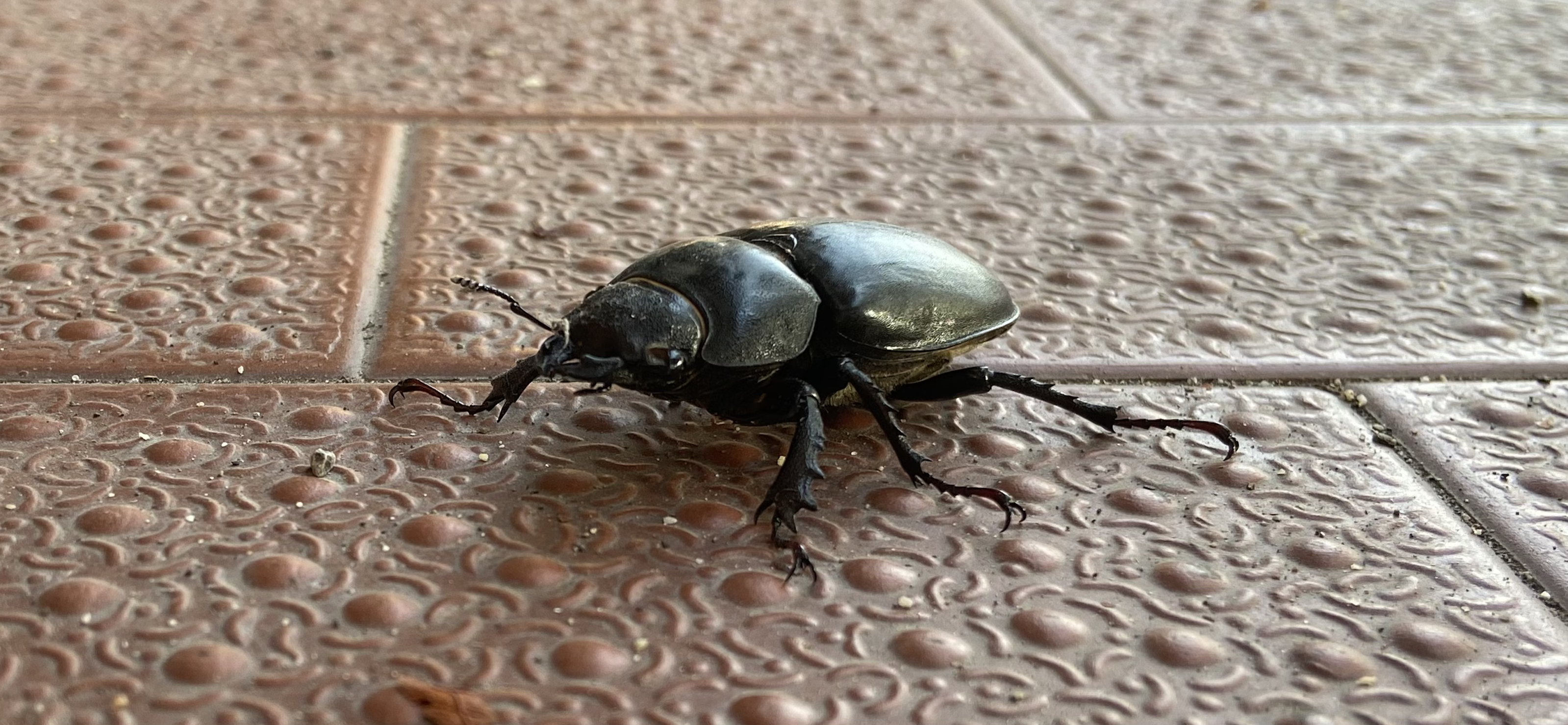
a female stag beetle, according to one of our professional archaeologists
The presence of bugs can be a polarizing topic for people. Not only can sentiments vary from person to person, but also within a person from context to context. I am all too familiar with that liminal space between friend to all bugs and reflexive exterminator. On this dig, however, I had the privilege of working with who I can only describe as the queen of bugs. Our trench supervisor, by trade an archaeologist, loves bugs almost as much as they love her. Often I'd hand her a dustpan containing the latest creepy crawly I didn't want in my workspace and get drawn into a fascinating impromptu entomology lesson. Pretty soon, the reflexive dread and skin crawling of encountering a spider heading my way was overshadowed by excitement to show the bug queen our latest guest star. These encounters also served as a great time to drink some water and take a 30 second break. By day 3 the whole trench was turning up new and interesting trench bugs at a steady pace.
Interestingly, my uneasiness in living among bugs was also greatly improved by spending time in places where bugs were supposed to be. Namely, a hole in the ground. Spending the day time gently scooping up strange fuzzy caterpillars and tossing them into the bushes made it easier to do the same for the critters back at base camp unless our resident bug queen was nearby. The terrifying whizz of something large, flying, and unfamiliar began to dissipate when you knew they were stag beetles going on their merry way.[1]
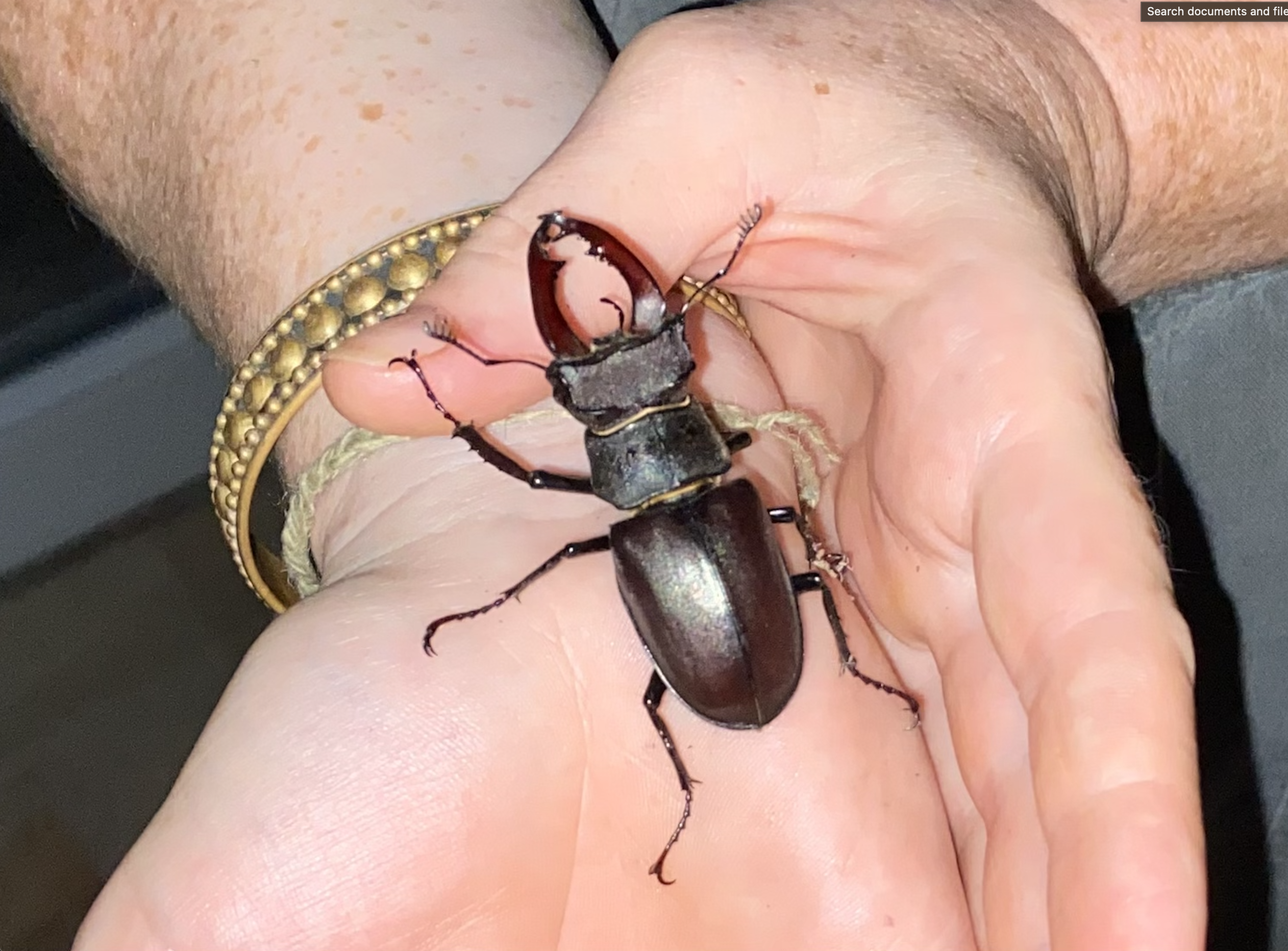
a male stag beetle in the hands of the aforementioned archaeologist
Gifts
One really nice feature of working on a small dig in a small town was the opportunity to become a spectacle for the locals. Much like zoo animals we would be visited by droves of community members who would stand behind the fences and observe, occasionally waving and speaking in a language only some of us fully understood. Carrying the simile a little further, these locals would sometimes gift us with food. One gentleman in particular, a local historian, came by frequently in the morning bearing bags of fresh focaccia. He was everyone's favorite.
Really, though, regardless of if they gave us delicious bread it was always fun to show community members what we were up to as we dug up their history. At least every hour someone driving past would ask in a shout if we had found any gold. If they stuck around to find out what we did find, they'd likely be disappointed, but we nonetheless had a policy of obscuring information about special finds to prevent looting.
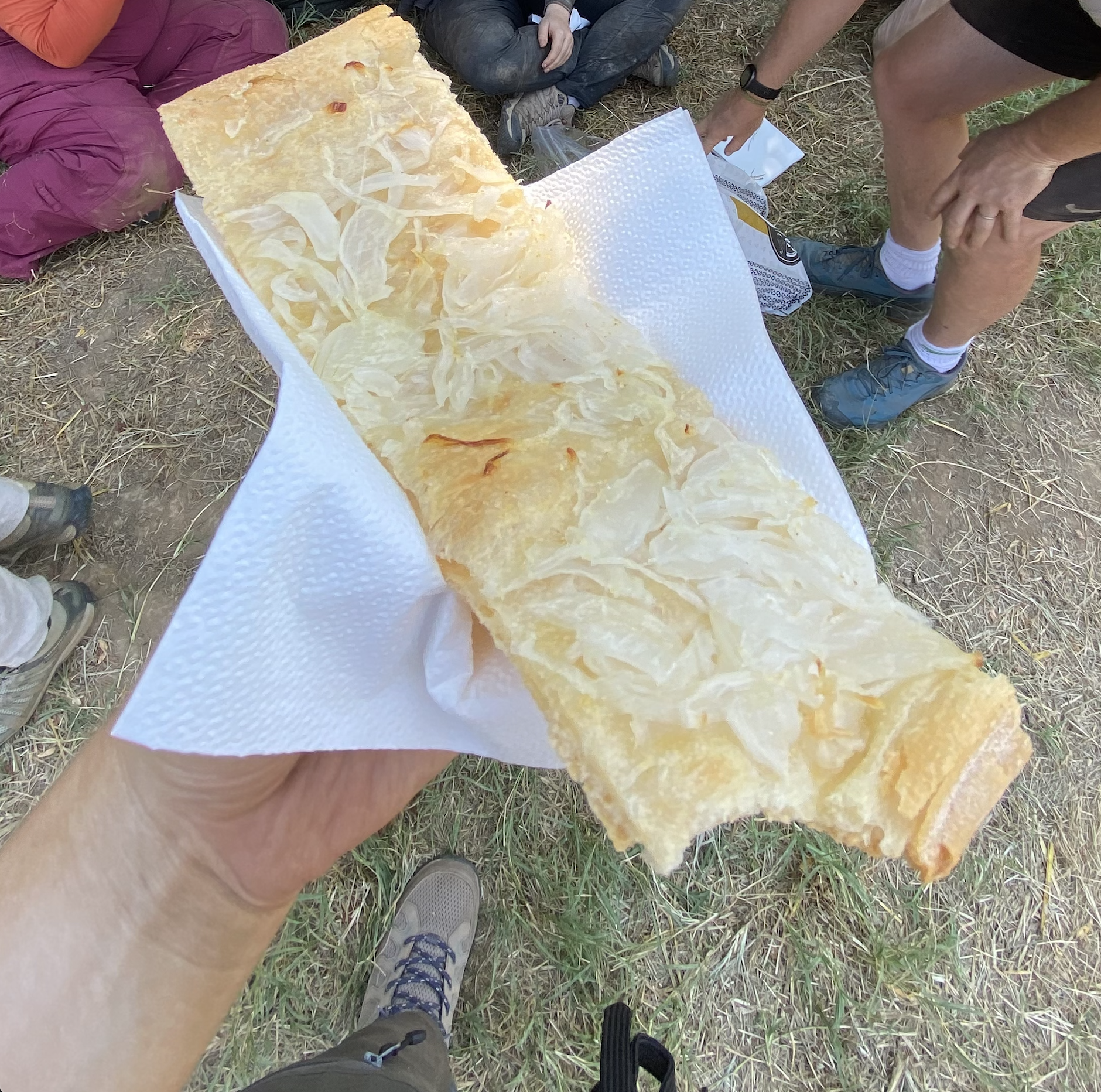
focaccia con cipolle
Unlocking the Ability to See New Dirt Colors
This is a fun one, and a little more directly linked to the work being done at the dig site. Among the more obvious skills you acquire in the trenches, there are also some odd and interesting ones.[2] An example of this is developing an eye for dirt colors. Part of understanding the context of what's being dug is identifying distinct layers of dirt from different kinds of activity. We used Munsell color books to spot less perceptible differences in the layers, but our trench supervisor was also able to spot new soil contexts just by eye and would gather us to take a look ourselves. I can't say I've gotten to her level in dirt color proficiency, but I've certainly improved on a personal level. It reminded me of watercolor paints, thinking about undertones and responses to different lighting.
Some more obvious skills acquired include precision sweeping and high speed technical drawing.
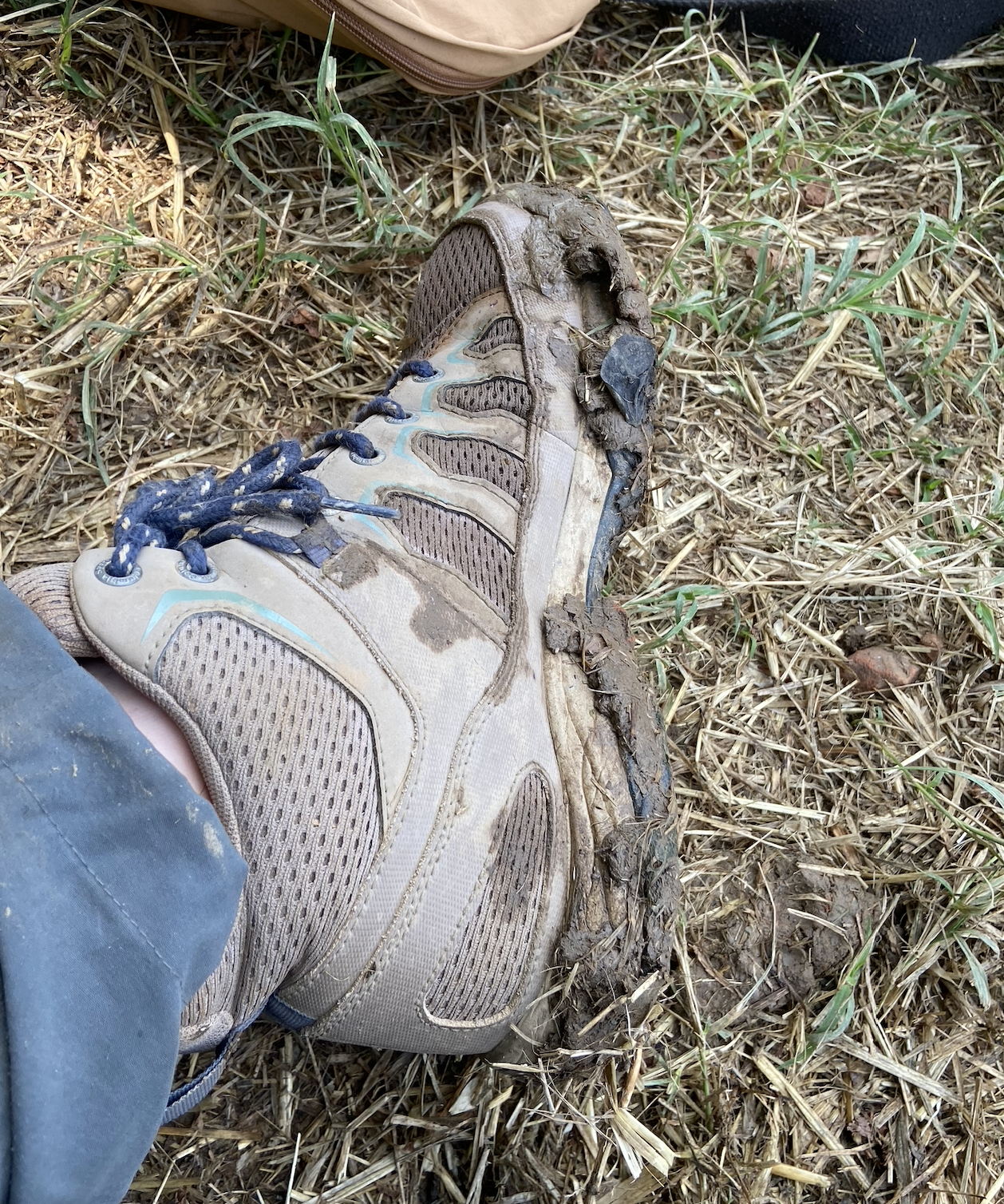
unsurprisingly, it helps to enjoy getting dirty when doing excavation
A Unique Form of Entertainment
alt title: fuck tv. pick a nerd, give them some wine, and get them talking about their hyper-fixation
The above strategy has always been a personal favorite for livening up the evening, and this field school gave me access to a charcuterie board of individuals with niche interests. Staff and students, freshmen and phDs alike had some obscure thing to get fired up about. I developed quite a knack for finding one's—as the kids say—Roman Empire.[3] By the end of the month we were treated to everything from a complete phylogeny of beer and its chemistry to the ancient origins of the mythological Medusa.
This routine proved particularly worthwhile when several of us visited a museum of Egyptian Archaeology and discovered one of our peers was a walking compendium on the subject. The experience of those three hours was fundamentally superior to any tour that can be offered, and I wish such a magical encounter on everyone at least once in their lives. And yes, my turn to play obsession tour guide would emerge a week later at a massive aquarium.

(via wikimedia, original here) I like to think this flavor of conversation has been a hallmark of good dinner parties for thousands of years
Shiny Rock (non-diagnostic)
alt title: pondering the mysteries of geology
The timeless classic of student archaeology is shoving an object into the view of your trench supervisor and asking if its a thing or a weird rock.[4] When it is indeed a weird rock (and believe me, there are some weird rocks out there) a discerning student will take a moment to assess if it is indeed a cool rock. If so, it may be briefly pondered and appreciated. Among our guest experts who visited our dig, there was no geologist to be found. If there had, I guarantee they would have been inundated with the curiosity of a pack of archaeologists for which the formation of these strange rocks was such a mystery. Unfortunately, the initial formation of a rock is seldom helpful in determining when it was added to a wall.
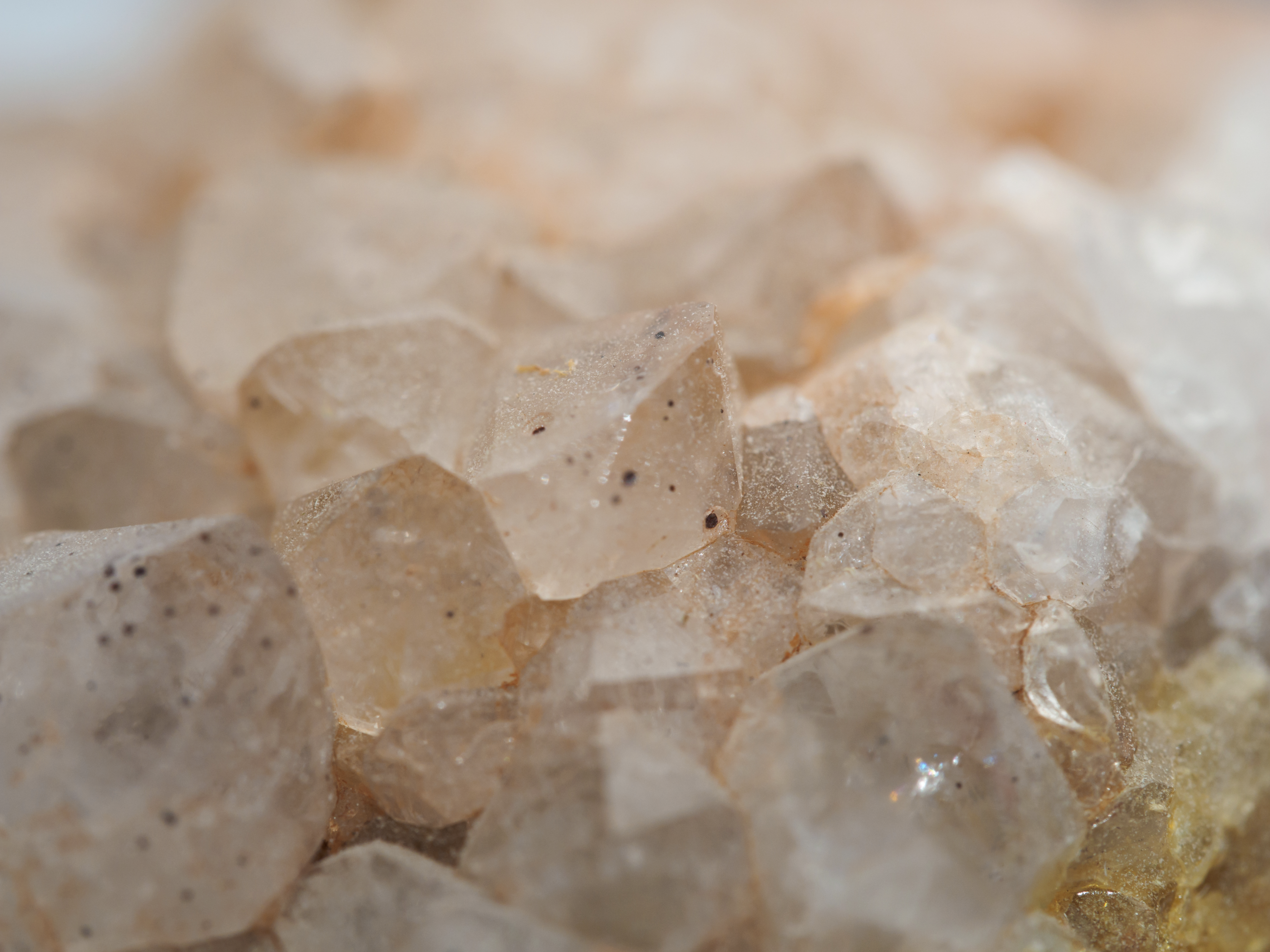
(via wikimedia, original here) the area were were working in had lots of natural quartz deposits, and while common, I'd never seen pieces so big before. Our favorite local historian informed me that the crystal can be struck with steel to create a spark and start a fire
The Inexplicable Excitement of Having No Idea What You are Looking at
You may have encountered on the internet a great number of article headlines containing the phrase 'archaeologists baffled'. Possibly, like me, you assumed this was the usual clickbait drivel and that the archaeologists in question likely had at least a general idea about what their latest find was. While this remains largely true, I did have an enlightening experience to the contrary when I asked our trench supervisor what kind of business or residence our recently uncovered labyrinth of peculiarly shaped rubble once was, and she admitted she hadn't the foggiest. As we continued to dig, everyone posited enticing theories, but then we would find a new feature that made even less sense than the last ones. We had a good laugh at ourselves when we caught ourselves hovering at the trench edge during cookie break together, trying to puzzle it out but--indeed--remained baffled. We quickly discovered that 'baffled' is in fact the natural, healthy, state of the wild archaeologist in many contexts. Now, at least, we have a good puzzle to mull over in the off season. I know I'll be haunted by mysterious rubble mazes for months to come.
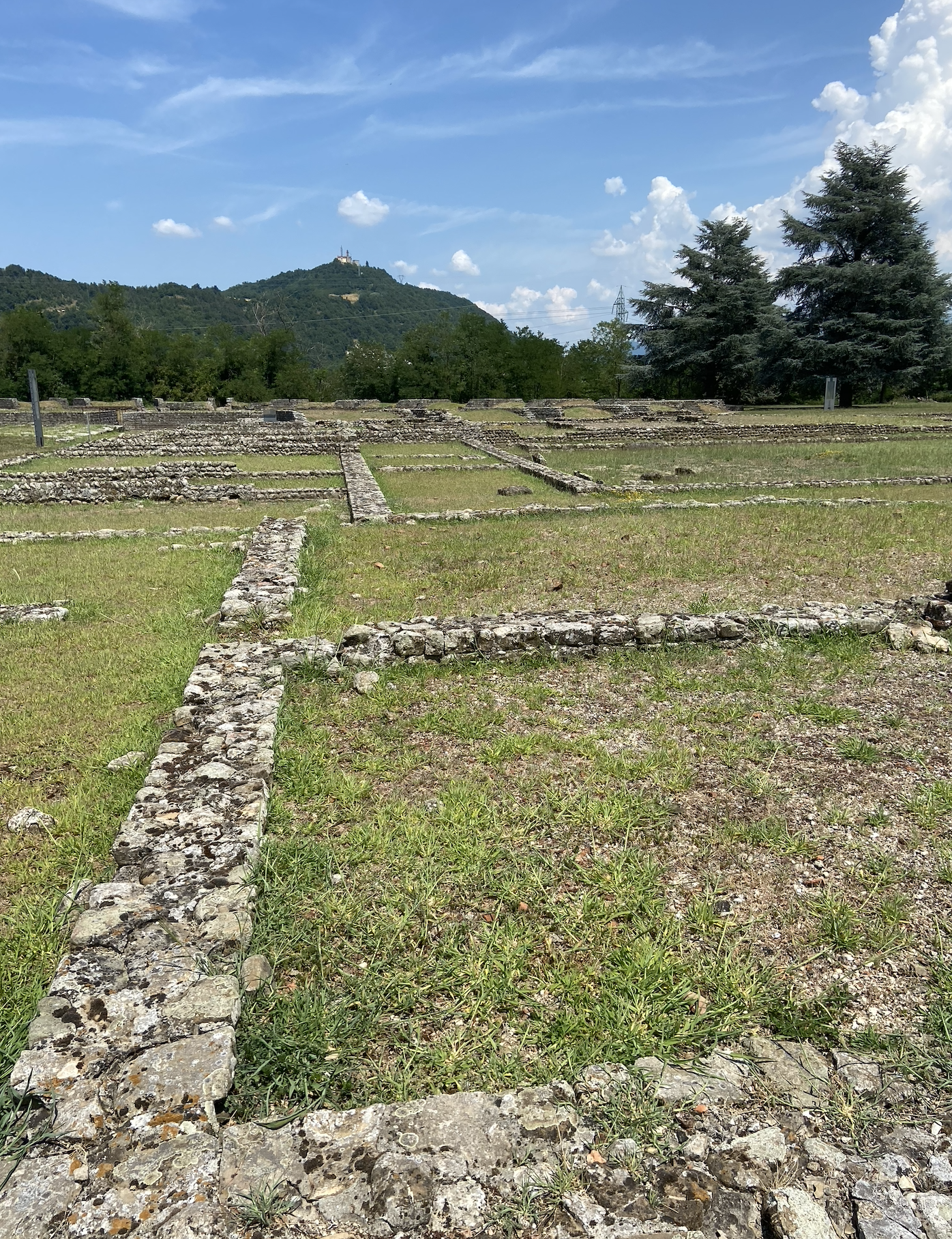
slightly less mysterious walls from the nearby archaeological park
[1]: Unfortunately, one flying terror of the night was to be replaced by another when the local bats made an appearance. As adorable as they are, there is little that can dispel the fear of rabies from my mind. Its a fascinating disease that presents with all sorts of unique features, which is a nice way of saying it is absolutely terrifying.
[2]: Though they often seem obvious upon reflection.
[3]: I'm sure the irony is lost on no one, but I'll bring it up anyways to point out that living together with nearly every person from your town who can be relied upon to think about the roman empire on an hourly basis lays the foundation for all sorts of wild and wonderful inside jokes
[4]: The question itself soon gets complicated when on the lookout for things like tesserae, or in the case of the dig I was on last year, lithic debitage. "Rock or Spicy Rock" is a revision I quite enjoy.